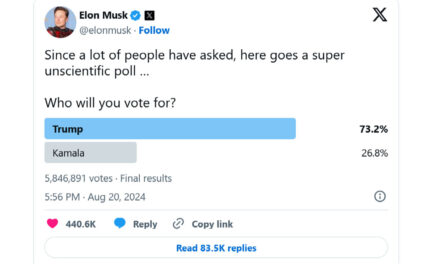
$716 Billion Defense Bill Passed by Senate
On Monday, a $716 million defense bill passed in Senate with an 85-10 vote from lawmakers.
The fiscal 2019 National Defense Authorization Act, H.R. 5515 (115) increases the budget so the military can acquire more warships, fighter jets, and troops.
It also includes a large 2.6 percent pay raise for troops.
“The wide-ranging legislation includes roughly $716 billion in spending, including $617.6 billion for the Pentagon’s base budget and $21.6 billion for defense-related programs of the Energy Department,” writes The Hill. “It would also include roughly $68.5 billion for a war fund known as the Overseas Contingency Operations account, and another $8.2 billion in defense-related spending outside the jurisdiction of the NDAA.”
In 2016, the Obama administration passed a defense spending bill of $523.9 billion for the fiscal year of 2017.
“The FY 2017 budget reflects recent strategic threats and changes that have taken place in Asia, the Middle East and Europe. Russian aggression, terrorism by the Islamic State of Iraq and the Levant (ISIL) and others, and China’s island building and claims of sovereignty in international waters all necessitate changes in our strategic outlook and in our operational commitments. Threats and actions originating in Iran and North Korea negatively affect our interests and our allies. These challenges have sharpened the focus of our planning and budgeting,” wrote the Department of Defence in February of 2016.
When President Trump took office he promised to rebuild the military but needed funding to do so.
In 2017, the House passed a defense bill that was a 10 percent increase from the previous budget bill.
About 60 percent of Democrats voted for this bill.
On Monday, only 10 lawmakers including Democratic Sens. Elizabeth Warren and Dianne Feinstein (Calif.,) Independent Sen. Bernie Sanders (Vt.,) and GOP Sens. Mike Lee (Utah) and Rand Paul (Ky.) made a stand against the latest bill due to the increase in funding for low-yield nuclear weapons.
“The bill would authorize $65 million to develop the weapon and remove a legal requirement that low-yield nuclear weapons be authorized by Congress before the Energy Department can develop them,” writes Politico. “House and Senate Democrats, who contend new tactical nukes would be destabilizing and increase the risk of nuclear war, have made cutting the funding for the weapons a priority.”
“If this defense bill passes in its current form, Congress will have lost our best opportunity to have a say in how they will develop it, what it will cost, and how or where it will be deployed,” said Warren.
Despite the effort by these lawmakers to vote against the bill, it was passed by a landslide in the Senate.
Now the House and Senate have to come up with a compromise on the bill. The House passed a defense spending bill last month.
The bills primarily differ when it comes to the size of the military and weapons systems.
“It would authorize $23.1 billion to build 10 new Navy ships, even with the Pentagon’s request. But that’s three fewer ships than recommended by the House. Notably, the legislation authorizes just one Littoral Combat Ship, despite calls from lawmakers in Alabama and Wisconsin, which are home to the shipyards that build the LCS, to buy as many as three,” writes Politico. “The Senate bill also would authorize $7.6 billion to procure 75 F-35 Joint Strike Fighters, two fewer than the Pentagon requested and authorized by the House. It’s a move Senate Armed Services said is needed to dedicate funding toward the plane’s sustainment as production ramps up.”
The House bill would grow the active-duty troops by 15,600, versus the Senate bill that outlines an increase of just below 7,000.
The Senate bill also included an amendment that would kill the recent agreement to allow China’s telecommunications company ZTE to resume business, but this provision was not included in the House version.
The U.S. isn’t the only country to increase defense spending either.
NATO Secretary General Jens Stoltenberg said that U.S. military allies have increase spending by 3.82 percent over the past year after Trump’s push for more contributions.
“President Trump has welcomed these figures, because he has really recognized this is progress.,” said Stoltenberg. “I’m not saying this is enough, but we didn’t promise to be at 2% within a year, we promised to stop the cuts, gradually increase and get to 2% within a decade. This is a good start.”
Author’s note: We are glad to see that Congress is doing its job and finally passing bills. Now it’s up to both the Senate and House to come up with a compromise on the 2019 budget.
Editor’s note: Trump is keeping yet another campaign promise.

























Recently, I penned: "How are those polls going? Perhaps time to run some more “look how bad Joe Biden was”…
That's what they said when they convicted the Felon Trump for business fraud, tax fraud, false business records, stealing from…
Dude, I am surprised you think AOC a long shot. I think it depends how much more you are willing…
WTP: Perhaps in your reality, but in the real world YOU don't have a clue IF this associated professor OR…
You of course are referring to Krusty Gnome?